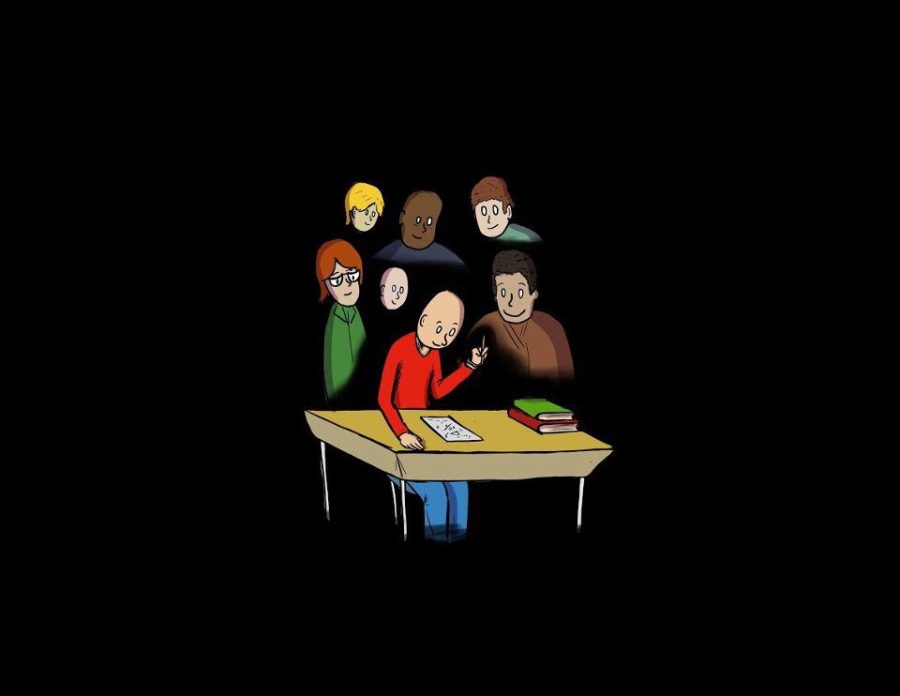Breaking Barriers rescues first-generation students from first-year difficulties
October 5, 2017
NIU needs to notice how well Breaking Barriers continues to break down the basics of going to college for first-generation students who might find acclimating tough and consider promoting the student organization.
“First-generation” is a term that applies to nearly 50 percent of all college students; however, 90 percent of low-income, first-generation students won’t graduate within six years, according to the Educational Advisory Board. At NIU, 53 percent of the incoming 2016 class was first-generation, according to the NIU OneBook. The same year, the university’s first and only first-generation student organization, Breaking Barriers, rose up in order to combat some of the inherent difficulties of being one of the first in the family to make it to college.
Breaking Barriers is a self-proclaimed “first-generation support group,” according to its Facebook page, but the organization provides much more, including mentoring and professional development. As the only organization of its kind on NIU’s campus, Breaking Barriers should be a staple organization for first-generation students in order to allow them to gain some of the knowledge that’s passed down to other students from parents and family members.
Being a first-generation student means there is a difference in knowledge and experience between first-generation students and non-first-generation students.
“Non-first-generation students have heard about college their entire lives,” said sophomore business-marketing major Johnathan Freeman. “They already have a foundation laid out. The biggest difficulty [in being first-generation] is that although your family has provided so many other things up until college, they can’t provide information. Advices, yes, but not information.”
Similarly, Brittany Harper, a freshman music education major, cites a similar issue as a barrier to successfully attending college. For her, a lack of knowledge about financial resources almost prevented her from attending NIU.
“Paying for [college] was extremely difficult. I’m a registered homeless youth, so I just couldn’t pay. I needed a co-signer for outside loans and didn’t have one,” said Harper.
On top of financial burdens and the lack of information, there are many other variables that impact the ability for first-generation students to begin and complete a degree. Once first-generation students successfully arrive at university, there’s often a culture shock that sets them back. Through providing targeted information through Breaking Barriers, NIU is beginning to combat the issues that hold first-generation students back. To further rectify the problems, the university needs to reach out to students and make Breaking Barriers an essential part of the first-generation experience.
“I feel like [my support system] prepared me for the financial part and the educational part, but they never prepared me for being social,” said freshman psychology major Hayley Scotti. “I’ve had such a hard time adjusting here that it’s sort of made me second-guess going to college and if NIU was the right choice. It’s one of those things where you have to put yourself out there, and I’m not used to selling myself. So I’ve had this huge issue finding commonality and putting myself out of my comfort zone to make friends. I’m relieved that I’m here, but now it’s up to me to go out of my way and make things better.”
These are all universal first-generation issues Breaking Barriers is able to help students get past. By providing a place where first-generation students can relate to and assist each other, the organization will help students flourish and overcome obstacles to success. Breaking Barriers should be firmly rooted in every first-generation student’s campus experience, at least in the beginning. They provide a place where like-minded students are able to understand that they’re not the only ones dealing with these issues.
“When I first joined [Breaking Barriers], it didn’t even have a name,” Freeman said,
If the organization becomes an expected part of all first-gens’ college life, then more students will have the support they need to overcome the first-generation barriers and successfully complete their degree. Until that happens, NIU should continue to put forth efforts to better assist students with no personal information about college experiences.
The organization is hosting its next meeting Thursday, Oct. 5, from 4 p.m. to 5 p.m. in the Campus Life Building, room 100.







